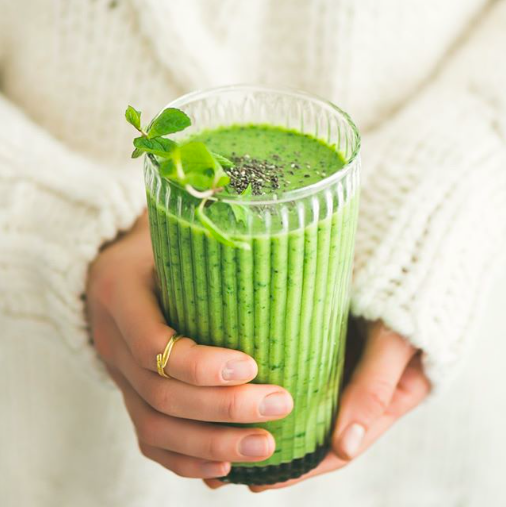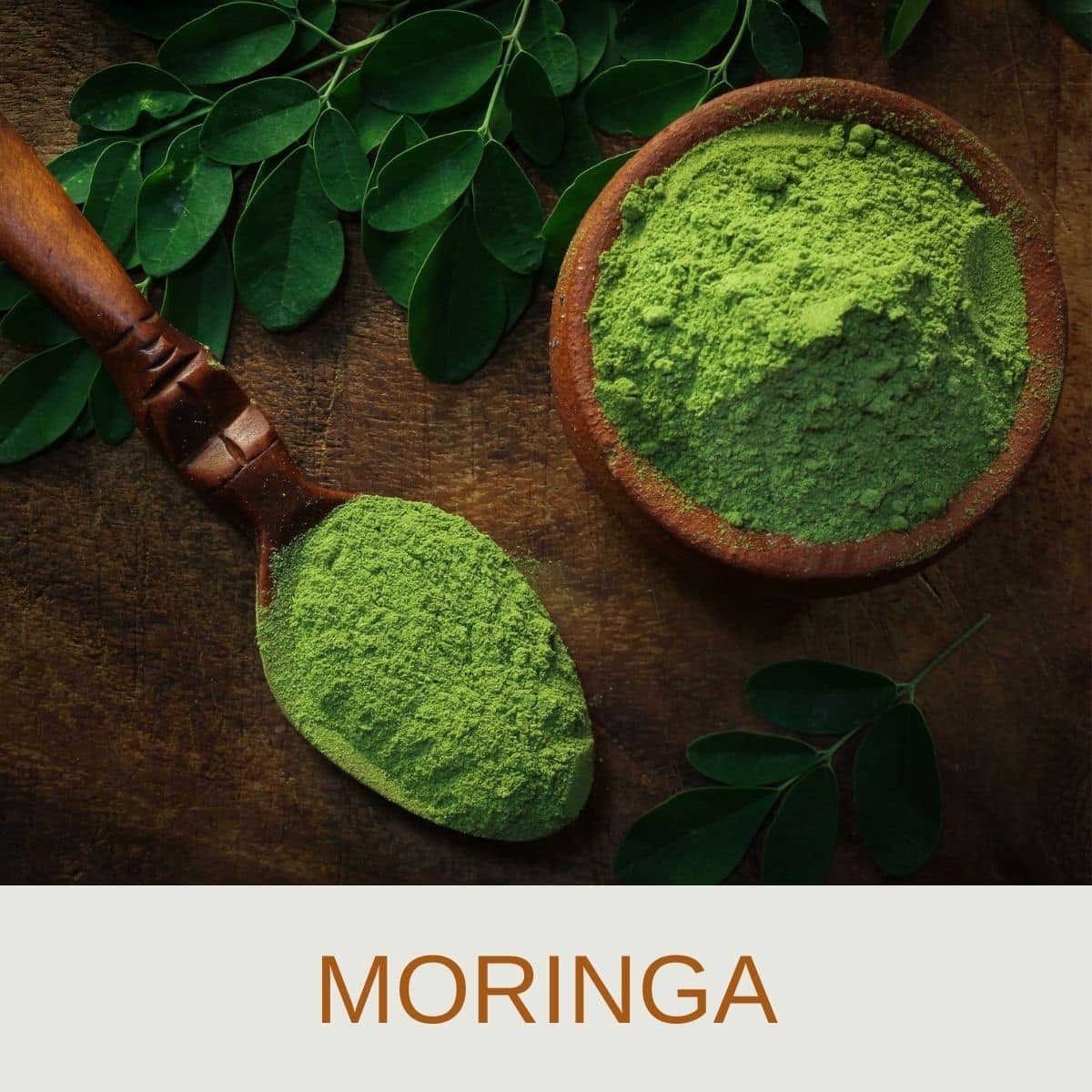In the realm of natural superfoods, one name stands out for its exceptional nutritional benefits – Moringa leaf powder. Often referred to as “Nature’s Multivitamin,” Moringa leaf powder has gained widespread popularity in recent years due to its remarkable health benefits and versatility. In this article, we’ll delve into the world of Moringa, exploring its origins, nutritional content, uses, and the myriad ways it can boost your overall well-being.
Table of Contents
Introduction to Moringa
What is Moringa?
Moringa, scientifically known as Moringa oleifera, is a versatile and nutrient-rich plant that is often referred to as the “drumstick tree” or “horseradish tree.” It is native to the Himalayan region of Northern India but is now cultivated and grown in various tropical and subtropical regions worldwide. Moringa is highly valued for its exceptional nutritional content and numerous health benefits.
The key components of the Moringa plant include its leaves, seeds, and pods, all of which are known for their nutritional density. Here’s a brief overview of the different parts of the Moringa plant:
- Moringa Leaves: Moringa leaves are the most commonly consumed part of the plant. They are rich in essential nutrients, including vitamins (such as vitamin A, vitamin C, and vitamin E), minerals (like calcium, potassium, and iron), and antioxidants. Moringa leaves are often used to make a nutrient-dense powder that can be added to various dishes or consumed as a dietary supplement.
- Moringa Seeds: Moringa seeds are packed with beneficial compounds and are a good source of protein and healthy fats. They are often used to extract Moringa oil, which is utilized in cooking and skincare products. Moringa seeds are also known for their water-purifying properties.
- Moringa Pods: The long, slender pods of the Moringa tree are sometimes called “drumsticks.” They are edible and have a mild, slightly sweet flavor. Moringa pods are used in a variety of culinary dishes and are known for their fiber content.
Moringa has gained a reputation as a nutritional powerhouse and is often referred to as “Nature’s Multivitamin” due to its exceptional nutrient profile. It is used in traditional medicine systems like Ayurveda and has been studied for its potential health benefits, including immune support, digestive health, weight management, and more.
Moringa is celebrated for its sustainability as well, as it thrives in arid and semi-arid climates, requiring minimal water and soil nutrients to grow. This makes it a valuable resource for combating malnutrition and food scarcity in impoverished regions.
In summary, Moringa is a remarkable plant known for its rich nutritional content and potential health benefits. It can be consumed in various forms, including Moringa leaf powder, Moringa oil, and fresh Moringa leaves and pods, offering a wide range of applications in both nutrition and wellness.

The Nutritional Powerhouse
Moringa leaves are often regarded as a nutritional powerhouse, and for good reason. These vibrant green leaves are packed with a wide array of essential vitamins, minerals, and antioxidants that contribute to their status as a superfood. Here’s a closer look at the nutritional profile of Moringa leaves:
Vitamins:
- Vitamin A: Moringa leaves are exceptionally rich in vitamin A, with higher levels than carrots. Vitamin A is essential for maintaining healthy vision, skin, and a strong immune system.
- Vitamin C: Moringa contains more vitamin C than oranges, making it a valuable source of this potent antioxidant. Vitamin C helps boost immunity and aids in collagen production for healthy skin.
- Vitamin E: This fat-soluble vitamin is abundant in Moringa leaves and plays a role in skin health, as well as protecting cells from oxidative damage.
- Vitamin K: Moringa is a good source of vitamin K, which is crucial for blood clotting and bone health.
Minerals:
- Calcium: Moringa provides a significant amount of calcium, essential for strong bones and teeth.
- Potassium: High levels of potassium in Moringa contribute to maintaining a healthy balance of fluids in the body and regulating blood pressure.
- Iron: Moringa is an excellent source of iron, particularly important for preventing iron-deficiency anemia.
- Magnesium: This mineral is essential for muscle and nerve function, and Moringa leaves contain a healthy dose of it.
Antioxidants:
Moringa leaves are rich in various antioxidants, including quercetin, chlorogenic acid, and beta-carotene. These antioxidants help protect the body’s cells from oxidative stress, reducing the risk of chronic diseases and supporting overall well-being.
Protein:
Moringa leaves are a surprising source of plant-based protein, containing all nine essential amino acids. This makes Moringa an ideal addition to vegetarian and vegan diets, helping meet protein requirements.
Fiber:
The leaves of the Moringa tree are also a good source of dietary fiber, which aids in digestion, promotes a feeling of fullness, and supports healthy bowel movements.
Low in Calories:
Despite their exceptional nutrient content, Moringa leaves are relatively low in calories. This makes them an excellent choice for those looking to boost their nutrition without excess calorie intake.
Incorporating Moringa leaves into your diet, whether in the form of Moringa leaf powder, fresh leaves, or teas, is an effective way to harness these nutritional benefits. With its remarkable combination of vitamins, minerals, antioxidants, and protein, Moringa truly lives up to its reputation as a nutritional powerhouse, offering a natural and sustainable way to support your health and well-being.

Health Benefits of Moringa Leaf Powder
Enhanced Immune Support
Moringa’s immune-boosting properties are attributed to its high vitamin C content, which helps the body fend off infections and illnesses. Regular consumption of Moringa can strengthen your immune system, keeping you healthy year-round.
Improved Digestive Health
Moringa is known for its digestive benefits. It acts as a natural laxative, promoting healthy bowel movements and relieving constipation. Additionally, Moringa’s anti-inflammatory properties can soothe digestive discomfort.
Moringa for Weight Management
For those looking to manage their weight, Moringa can be a valuable ally. It supports weight loss by increasing metabolism and promoting a feeling of fullness, reducing overall calorie intake.
Skin and Hair Benefits
Moringa’s rich nutrient profile extends its benefits to your skin and hair. It can help combat skin issues like acne and promote healthy, radiant skin. When applied topically, Moringa oil nourishes and strengthens hair, reducing hair fall and promoting growth.
How to Incorporate Moringa into Your Diet
Moringa as a Dietary Supplement
One of the easiest ways to enjoy the benefits of Moringa is by taking it as a dietary supplement. Moringa leaf powder is readily available in capsule or powdered form, making it convenient for daily use.
Cooking with Moringa Powder
Moringa powder can be incorporated into a variety of dishes, from smoothies and soups to salads and curries. Its mild, earthy flavor blends seamlessly with different cuisines, enhancing both the taste and nutritional value of your meals.
Moringa Tea: A Refreshing Option
Moringa tea is a soothing and nutritious beverage. Simply steep Moringa leaves in hot water, and you’ll have a refreshing tea that provides a burst of energy and vital nutrients.
Moringa’s Sustainability and Environmental Impact
Moringa’s Role in Sustainable Agriculture
Moringa trees are exceptionally resilient and thrive in arid regions, making them a valuable resource for sustainable agriculture. They require minimal water and soil nutrients while providing abundant nutrition.
Reducing Food Waste with Moringa
Moringa’s long shelf life and versatility in culinary applications contribute to reducing food waste. Every part of the tree, from leaves to roots, can be utilized, leaving no room for wastage.
The Global Moringa Craze
Moringa Around the World
The popularity of Moringa has transcended borders, with its cultivation and consumption spreading globally. It is now a staple in many countries, from India and Africa to the United States and Europe.
Moringa Products and Availability
Moringa products, such as capsules, powders, and oils, are readily available in health food stores and online markets. The accessibility of these products has made it easier for people worldwide to incorporate Moringa into their daily routines.
Moringa’s Side Effects and Precautions
Who Should Avoid Moringa?
While Moringa offers numerous health benefits, it may not be suitable for everyone. Pregnant and breastfeeding women, as well as individuals with certain medical conditions, should consult with a healthcare professional before adding Moringa to their diet.
Potential Interactions with Medications
Moringa can interact with certain medications, including blood thinners and medications for diabetes and high blood pressure. It’s crucial to inform your healthcare provider if you are considering Moringa supplementation.
Moringa: A Versatile Beauty Aid
DIY Moringa Face Masks
Create your own Moringa face masks by mixing Moringa powder with water or other natural ingredients. These masks can rejuvenate your skin, leaving it feeling soft and refreshed.
Moringa Oil for Hair Care
Moringa oil is a fantastic natural hair care product. Massage it into your scalp to promote hair growth and use it as a conditioner to keep your locks healthy and lustrous.
Growing Your Own Moringa Tree
Planting and Caring for Moringa
If you have a green thumb, consider growing your own Moringa tree. It’s a rewarding experience that allows you to enjoy fresh Moringa leaves and pods right from your backyard.
Harvesting Moringa Leaves
Harvesting Moringa leaves is a straightforward process. Simply pluck the mature leaves from the tree, taking care not to damage the branches. Fresh Moringa leaves are a valuable addition to your kitchen.
Moringa Research and Scientific Studies
Notable Research Findings
The scientific community has shown great interest in Moringa, leading to numerous research studies. Some notable findings include Moringa’s potential to lower cholesterol, reduce inflammation, and combat oxidative stress.
The Future of Moringa Research
As the demand for Moringa continues to grow, we can expect more research to uncover additional health benefits and applications for this remarkable plant.
Moringa in Traditional Medicine
Moringa in Ayurveda
In Ayurvedic medicine, Moringa has been used for centuries to treat various ailments, including digestive issues, skin problems, and as a general tonic for overall health and well-being.
Moringa in Traditional African Medicine
African traditional medicine also incorporates Moringa for its healing properties. It has been used to address malnutrition and boost immunity in many African communities.
Moringa’s Role in Alleviating Malnutrition
Moringa as a Solution to Global Hunger
Moringa’s high nutrient content has led to its recognition as a potential solution to global hunger and malnutrition. Non-profit organizations are working tirelessly to promote the cultivation and consumption of Moringa in impoverished regions.
Moringa Recipes: Culinary Delights
Moringa Smoothie Recipe
Try this delicious Moringa smoothie recipe for a nutritious and energizing start to your day:
Ingredients:
- 1 banana
- 1 cup spinach
- 1 tsp Moringa leaf powder
- 1/2 cup Greek yogurt
- 1/2 cup almond milk
- Honey to taste
Instructions:
- Blend all the ingredients until smooth.
- Enjoy your Moringa-infused green smoothie!
Moringa Energy Bites
For a quick and healthy snack, whip up some Moringa energy bites:
Ingredients:
- 1 cup rolled oats
- 1/2 cup almond butter
- 1/4 cup honey
- 1/4 cup Moringa leaf powder
- 1/4 cup chopped nuts
- 1/4 cup dried cranberries
Instructions:
- Mix all the ingredients in a bowl.
- Roll the mixture into bite-sized balls.
- Refrigerate for an hour, then enjoy!
Source to Get Organic Moringa Leaf Powder Capsules
Conclusion
Embracing the Moringa revolution can lead to a healthier, more sustainable lifestyle. With its unparalleled nutritional benefits and versatility, Moringa leaf powder truly deserves its title as “Nature’s Multivitamin.” Whether you choose to take it as a supplement, incorporate it into your meals, or use it in your skincare routine, Moringa has something to offer everyone.
FAQs
- Is Moringa suitable for children?
- While Moringa is generally safe for children, it’s advisable to consult with a pediatrician before introducing it into their diet, especially for very young children.
- Can Moringa cure diseases?
- Moringa is not a cure for diseases, but it can support overall health and well-being. It should not be used as a replacement for medical treatment.
- How should I store Moringa leaf powder?
- Store Moringa leaf powder in an airtight container in a cool, dark place to preserve its freshness and nutritional value.
- Are there any contraindications for Moringa and medications?
- Some medications may interact with Moringa. If you are taking medications, consult your healthcare provider before using Moringa supplements.
- Is Moringa sustainable for the environment?
- Yes, Moringa is considered an environmentally sustainable crop due to its low water and nutrient requirements and minimal waste generation.
